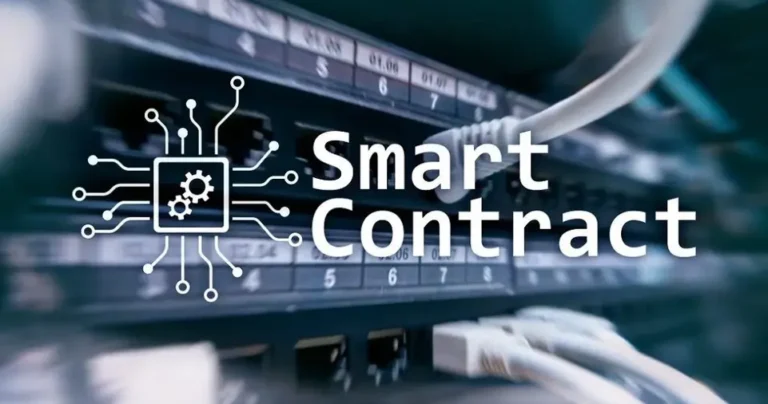Smart contracts are transforming the way businesses operate by offering a secure, automated, and transparent way to handle transactions.
These digital contracts, built on blockchain technology, eliminate the need for intermediaries, reducing costs and enhancing efficiency.
Businesses in various sectors, including finance, supply chain, real estate, and healthcare, can leverage smart contracts to automate processes, enforce agreements, and ensure trust among parties.
Unlike traditional contracts, smart contracts execute predefined actions when specific conditions are met, reducing human intervention and the risk of disputes.
They also provide an immutable record of transactions, improving security and reliability.
The rise of blockchain technology has made smart contracts a viable solution for businesses looking to modernize their operations and improve efficiency.
This guide will walk you through everything you need to know about using smart contracts for your business, including their benefits, applications, how to create and deploy them, and the best practices to follow for a successful implementation.
What Are Smart Contracts?
Understanding Smart Contracts
A smart contract is a self-executing agreement where the terms and conditions are written directly into code.
Once the conditions are met, the contract executes automatically without the need for third-party intervention.
This technology is primarily built on blockchain networks such as Ethereum, Binance Smart Chain, Solana, and Hyperledger Fabric.
Smart contracts operate using if-then logic, ensuring that actions are only carried out when predetermined requirements are fulfilled.
These contracts are immutable, meaning once deployed, they cannot be altered, making them secure and tamper-proof.
Benefits of Smart Contracts for Businesses
- Automation – Eliminates manual processes, reducing time and human errors.
- Cost Reduction – Cuts expenses by removing intermediaries such as banks and legal professionals.
- Security – The decentralized nature of blockchain prevents unauthorized modifications or fraud.
- Transparency – All contract terms and transaction details are visible to involved parties.
- Efficiency – Faster execution of agreements without paperwork or delays.
- Trust and Accuracy – Eliminates the need to rely on third parties, ensuring trust between participants.
How Smart Contracts Can Benefit Different Industries
Supply Chain Management
In supply chain operations, smart contracts can automate and enhance transparency by tracking products at every stage.
Businesses can record shipments on a blockchain, reducing fraud and improving accountability.
Smart contracts help suppliers and manufacturers process payments instantly upon delivery verification.
For instance, a manufacturer can set up a smart contract that automatically releases payment once the supplier delivers raw materials and meets quality standards.
This eliminates disputes and ensures seamless transactions.
Finance and Payments
Financial institutions and businesses can leverage smart contracts for lending, insurance, payroll automation, and cross-border payments.
They enable instant transactions, reducing delays and eliminating bank processing fees.
For example, in insurance, a smart contract can automatically issue claims when a policyholder submits valid proof of a claim.
This prevents fraud while speeding up payouts.
Similarly, payroll systems can be automated so that employees receive salaries based on predefined work hours and performance metrics.
Real Estate and Property Transactions
Real estate deals often involve extensive paperwork and third parties like brokers and lawyers.
Smart contracts streamline transactions by automating property transfers, lease agreements, and payments.
A smart contract can store property details, ownership records, and transaction history on a blockchain.
When a buyer fulfills payment conditions, ownership is automatically transferred to their name, reducing the risk of fraud and speeding up the process.
Healthcare and Medical Records
Smart contracts can secure patient records, ensuring privacy and authenticity.
Healthcare providers can store medical histories, prescriptions, and insurance data on a blockchain, granting access only to authorized personnel.
Additionally, patients can use smart contracts to approve medical procedures, ensuring all terms are met before treatment.
This prevents unauthorized access and improves efficiency in medical services.
Legal Agreements and Compliance
Businesses often deal with legal agreements such as service-level agreements (SLAs) and business partnerships.
Smart contracts can automate these agreements, ensuring compliance without needing intermediaries.
For instance, a service provider can establish a contract where payment is only released if specific conditions, like delivery deadlines and quality standards, are met.
This guarantees compliance and builds trust between businesses and clients.
ALSO READ: How to Create and Sell NFTs as a Beginner
Steps to Implement Smart Contracts in Your Business

Step 1: Identify the Use Case
Start by defining the specific problem you want to solve using a smart contract. Determine if automating the process will improve efficiency, security, or cost savings for your business.
Common use cases include financial transactions, supply chain management, and contract enforcement.
Step 2: Choose the Right Blockchain Platform
Selecting the right blockchain platform is crucial.
Some popular platforms include:
- Ethereum – Most widely used but has high gas fees.
- Binance Smart Chain – Offers lower fees and faster transactions.
- Solana – Known for high-speed transactions and scalability.
- Hyperledger Fabric – Ideal for enterprise solutions and private business networks.
Each blockchain has different features, so choose the one that aligns with your business needs.
Step 3: Develop the Smart Contract
Once you’ve chosen a blockchain, you need to develop your contract.
This involves:
- Defining the terms and conditions of the contract.
- Writing the contract in a programming language like Solidity (Ethereum) or Rust (Solana).
- Hiring a blockchain developer if needed.
- Testing the contract on a test network (e.g., Ethereum’s Ropsten Testnet) before deploying it live.
Step 4: Deploy and Monitor the Contract
After testing, deploy your contract on the main blockchain network.
Use blockchain explorers like Etherscan to track transactions and monitor contract performance.
Step 5: Ensure Security and Compliance
Security is a major concern with smart contracts.
To prevent vulnerabilities:
- Conduct smart contract audits by professionals.
- Follow legal compliance to avoid regulatory issues.
- Implement risk management strategies in case of contract failure.
Step 6: Integrate Smart Contracts into Business Operations
Once deployed, integrate smart contracts with your existing business processes, such as payments, record-keeping, and contract management, to maximize efficiency.
Challenges and Limitations of Smart Contracts
Irreversibility
Once deployed, smart contracts cannot be modified. If an error occurs in the contract code, it could lead to financial losses.
High Development Costs
While smart contracts eliminate intermediaries, initial development costs can be high, requiring skilled blockchain developers.
Legal and Regulatory Issues
Many countries are still developing regulations for blockchain-based contracts. Businesses must ensure their contracts comply with legal requirements.
Scalability Issues
Some blockchains face congestion issues, leading to slow transaction times and high fees, affecting businesses that require high-speed transactions.
Conclusion
Smart contracts provide businesses with a revolutionary way to automate transactions, improve security, and reduce costs.
By leveraging blockchain technology, companies can enhance efficiency, reduce fraud, and build trust with customers and partners.
However, successful implementation requires careful planning, platform selection, security audits, and compliance with regulations.
As blockchain technology continues to evolve, smart contracts will play an increasingly vital role in shaping the future of digital transactions.
Businesses that adopt this technology today will gain a competitive edge in tomorrow’s digital economy.











